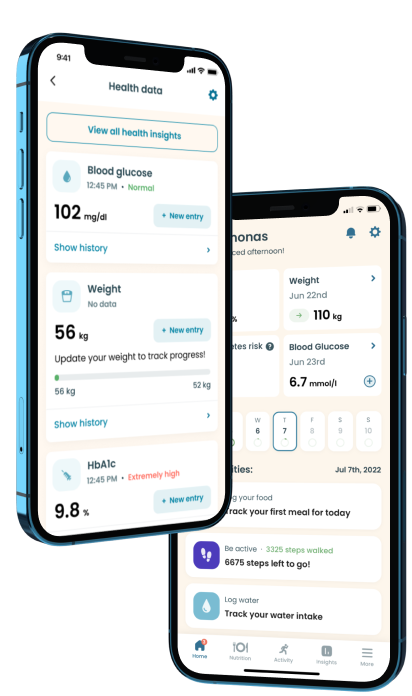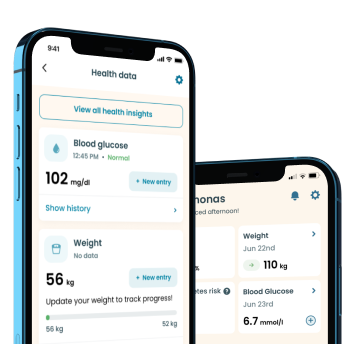Pomelo and Diabetes

Good
25
39 kcal
Are you seeking a diabetes-friendly treat to keep your blood sugar within a safe range? Look no farther than the produce drawer of your refrigerator. Many healthful fruits and vegetables are typically overlooked when it comes to diabetic meals. Pomelo, also known as pummelo, is one of those fruits.
This article expounds on the relationship between pomelo and diabetes. More specifically, it throws light on its diabetes benefits and why you should consider eating pomelo today.
Nutritional value
- Protein 0.76 g
- Carbohydrate 9 g
- Fat 0 g
- Fiber 1 g
- Sugar 3 g
- Cholesterol 0 g
Nutritional Values of Pomelo
The nutrients found in one cup of sectioned pomelo include 1.44 g of protein, 18.3 g of carbs, 1.9 g of dietary fiber, and 11.4 mg magnesium, which benefit diabetes. Namely, its decent fiber content ensures you stay full for more extended periods. It’s also a low-calorie fruit at just 72.2 cal per cup, aiding weight loss.
Although it has a high glycemic index (GI) of 72–78, its low glycemic load (GL) of 4.23 per 3.5 oz serving compensates for this. Pomelo also contains potassium (9.7–11.7% DV per cup), which aids with fluid balance and blood pressure regulation.
Take a quiz
Discover what Klinio app can do for you
Healthy diabetes meal plan crafted just for YOU

Personalized workouts with no equipment needed

Track your progress with smart tracking tools

Why Should Diabetics Consume Pomelo?
Promotes Weight Loss
According to a study, shedding a mere 5 kg (11 lb) of one's body weight can lower the risk of developing type 2 diabetes by 55% in high-risk populations.
One peeled pomelo has 231 calories, which is quite a low number for such a significant food portion. Eating a lot of low-calorie foods will help you stay satiated while consuming fewer calories.
Fiber-Rich food
Fiber, especially soluble fiber, can help persons with diabetes control their blood sugar levels by slowing sugar absorption. Also, insoluble fiber, along with a good diet, may help to lower the risk of diabetes.
Pomelo is high in insoluble fiber, which adds weight to your stool and helps avoid constipation. Furthermore, fruit fiber, such as that found in pomelo, has been linked to long-term weight stability and a lower risk of some chronic diseases (diabetes inclusive).
Antioxidant-Rich Food
Accumulation of free radicals in the body can cause health issues and chronic diseases. Thankfully, pomelo's strong antioxidant concentration is responsible for many of the fruit's benefits, including anti-aging and heart-healthy characteristics. Notably, its high antioxidant content can help prevent and counteract free radical damage.
One pomelo fruit contains about 412% DV of vitamin C and several other antioxidant components like lycopene — a potent anti-inflammatory antioxidant found in tomatoes.
It Improves Cardiovascular Health
Pomelos have been shown to improve heart health by lowering cholesterol and triglycerides, two blood lipids associated with heart disease. In a three week-study, supplementing with concentrated pomelo extract for 21 days lowered triglyceride levels by up to 21.44%, total cholesterol by 5.78%, and LDL (“bad”) cholesterol by up to 40.74% in diabetic rats. Additionally, pomelo can lower blood lipids by preventing the complete absorption of food cholesterol in the body.
Research on Pomelo and Diabetes
Pomelo has been shown in tests to reduce oxidative stress and inflammation, among other benefits. It's high in naringin, a flavonoid found in citrus fruits that gives it its characteristic bitter taste. Remarkably, the study proved the antioxidant- and cholesterol-lowering properties of naringin, amongst other benefits.
Supplementing with naringin may also help with obesity, hypertension, and metabolic syndrome, according to a 2014 study. However, some of these features require further research for verification.
Another study showed that pomelo-infused bread had higher quantities of resistant starch and a lower GI than control bread. Once again, these features were attributed to its naringin content. As such, the pomelo-infused bread presents a slower and more progressive release of glucose than control bread.
Should You Take Pomelo as a Diabetic?
Yes, you can. However, it’s important to point out that its naringin content might inhibit the breakdown of carbs. While this may be somehow beneficial, carbohydrates can cause fat deposition and weight gain when ingested in large amounts. High body fat also raises the chance of developing a variety of ailments, including diabetes. As a result, it's critical to consume it in moderation.
How to Incorporate Pomelo Into Your Diet
Pomelo is a fruit that is easy to peel and can be eaten raw or cooked. You can consume it alone as a snack or substitute it for other citrus fruits in dishes. It's also a fantastic complement to salads. However, pomelo that has been dried has more sugar and calories than the fresh variant.
Summary
Pomelo is a fruit high in vitamins, minerals, and antioxidants while being low in calories. It also includes fiber and protein, which can help you feel fuller for longer. Overall, the pomelo fruit is nutritious and a great addition to any diet (diabetes-focused ones in particular).

Download Klinio app!
Get more by downloading our free Klinio App. Analyze your health, form new habits and manage your diabetes anytime, anywhere.
OR
SCAN QR CODE



GET THE APP











